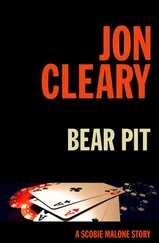‘Take a bath and rest for a while,’ said Kern, speaking all the time to Eve; the others could do what they liked. ‘We shall dine at eight.’
An hour later Eve walked out of her bedroom on to a terrace. Refreshed, wearing a clean blouse and skirt that had been in her overnight bag, she felt pleased at the day’s progress. She still had a long way to go to save her father, but the trip had started well. She took the gold watch from the pocket of her skirt, opened it and watched the moving second hand: again the bomb image sprang to her mind and her hand jerked of its own accord as if to throw the watch over the wall of the terrace. Instead she snapped the lid shut and shoved the watch back in her pocket.
She stood beside the stone wall and looked down at the lake turning blue-grey in the soft twilight. Pigeons murmured in the trees below her; out on the lake a last sail-boat drew a silver line behind it towards home. It was all so peaceful, and on the other side of the world her father might already be dead. She put her hand to her throat, feeling the sudden thickening pain inside it.
‘It all looks untouched,’ said O’Malley behind her. ‘It’s hard to realize they lost the war.’
‘Those in the cities know they lost it.’ She took her hand away from her throat, recovering quickly. ‘That’s what I read. Millions of unemployed, money not worth the paper it’s printed on.’
‘You sound sorry for them.’
‘I might be, if I thought about them. I was a long way from the war, Mr O’Malley, and I didn’t lose anyone in it. No fathers or brothers or even a cousin. I might feel differently if I had. Did you lose anyone?’
‘No relatives. Just friends.’ He turned back to looking out at the lake, closing a door on the war. ‘We may be in trouble tomorrow morning if Herr Bultmann gets officialdom on his side. German officialdom is the worst kind.’
‘We can’t afford to lose even a day, not so soon. What do you suggest?’
‘I don’t know. I’ve run out of invention. And Bultmann thinks I’m a liar anyway.’
‘You are a liar, Mr O’Malley, but I’m not sure yet how serious a one. You are also not averse to swindling a lady out of some money, making a quick profit if you can. Am I right?’
O’Malley smiled, unabashed. ‘Anyone who makes a profit out of you, Miss Tozer, deserves a medal. I talked to Arthur Henty yesterday before you went back to London. I wanted to know a bit more about you before I started following you to the ends of the earth. I gather your grandfather wasn’t above a bit of swindling if he could make a profit.’
‘Did Mr Henty say that?’
‘No. But I put two and two together. I don’t think any white man would make a fortune in China if he was entirely honest and stuck to his scruples. I must ask Mr Sun about it some time.’
‘My father is honest.’
‘Arthur Henty didn’t say he wasn’t. And I’ll take your word for it.’
‘Until you ask Mr Sun, is that what you mean?’
Eve realized she was looking at O’Malley carefully for the first time. She had always had a lively interest in men and she had had two serious affairs, one of which had petered out and the other had been broken off sharply when she had discovered the man in question had been as interested in getting into her bank account as getting into her bed. But there had been no disillusionment; as she had told Arthur Henty in London (only yesterday?) she was mad about good-looking men. Quite apart from the worry and distraction of what had happened to her father, perhaps she had not been interested in O’Malley purely as a man because he was not good-looking. He was just above medium height, well-built, clear-skinned and healthy-looking; but he was not handsome. He had brown curly hair that was in need of a cut, a broad blunt face with a long upper lip only relieved by the well-shaped nose above it, and eyes that were too mocking ever to offer an invitation to a girl who believed in romance.
‘I don’t think Mr Sun would be the man to ask. He’d be too influenced by his master, as he calls him.’
‘Just who are you, Mr O’Malley, besides being an ex-ace?’ She cupped one elbow in her hand, put the other hand under her chin.
‘An ex-infantry officer. No kills that I can claim, if that’s your next question.’
‘Who were you before the war?’
‘Nobody.’ He grinned. ‘I’m an only child, like you. My father is in the Colonial Service. He and my mother are out in Tanganyika now, trying to educate the natives that the British Empire will be better for them than the German one was.’
‘Do you think it will be?’
‘I don’t know. If ever I meet a native, I’ll ask him. My father won’t. He believes the British Empire is the closest thing on earth to a well-run Heaven. It may well be. I’m just not interested in propagating the idea.’
‘You sound like a radical. Were you one before the war?’
‘No. I was at Oxford playing cricket and rugger and drinking beer. One term I tried drinking sherry, but I discovered I’m no aesthete. Not as a drinker, anyway.’
‘Was that all you did – played cricket and rugger, whatever that is, and drank beer?’
‘No. Occasionally I read History, but it was considered bad form to swot. I was very much against bad form in those days.’
‘But not now?’
He shook his head and grinned again. ‘I saw too much of what was good form during the war. It killed more men than bad form ever did.’
‘You don’t believe in duty?’
Kern had come along the terrace. He was still dressed as he had been earlier, still the lady-killer; and Eve wondered if he went to the tea dances over in Constance and actually was a gigolo. But despite his foppish image there was something about the Baron that said he would never sell himself to anyone. Least of all to fat matrons at Constance. Though Eve wondered who, in these days of incredible inflation, had money to buy a partner even for a dance. But perhaps, she thought, absorbing some of O’Malley’s cynicism, not all Germans had lost the war.
‘You sound like our government in Berlin,’ said Kern. ‘Schneidemann and Erzberger sneer at the sense of honour we had in our army.’
‘I don’t sneer at a sense of honour,’ said O’Malley. ‘I just don’t admire stupid generals who expect too much of it.’
Kern bit his lip, then nodded stiffly and reluctantly. He was an honest man, too uncomplicated for dialectics; he was a past pupil of an old school that was now just ruins. He turned his attention to Eve. A sense of honour was not so necessary with women: he knew that most of them privately had too much common sense to expect it.
He offered his arm, a courtier from the old school. ‘Shall we go in to dinner, Fräulein Tozer?’
Over dinner Kern held the chair. ‘I am from Koenigsberg. The Poles have our city now. You English and Americans don’t know what it is like to have your home city given away to another country.’
‘You asked for it,’ said George Weyman round a mouthful of potatoes. His dislike of Germans did not extend to their food. He had had two helpings of soup and the meat course and was on his third glass of wine. But he sounded only amiably argumentative. ‘You had to give up something. You can’t lose a war and get off scot-free.’
‘Perhaps Mr Sun has something to say about that,’ said Eve. ‘They have had wars in China for far longer than we’ve had them.’
Sun Nan was seated beside Weyman at the table. O’Malley and Eve were opposite, with Kern at the head. He had said nothing since they had arrived at the castle, but his eyes and ears had been open, absorbing everything that surrounded him. He had been impressed by the castle; he wished his master were here to take an example from the circumstances. The yamen at Szeping had begun to look like nothing more than a grandiose tenement.
Читать дальше












